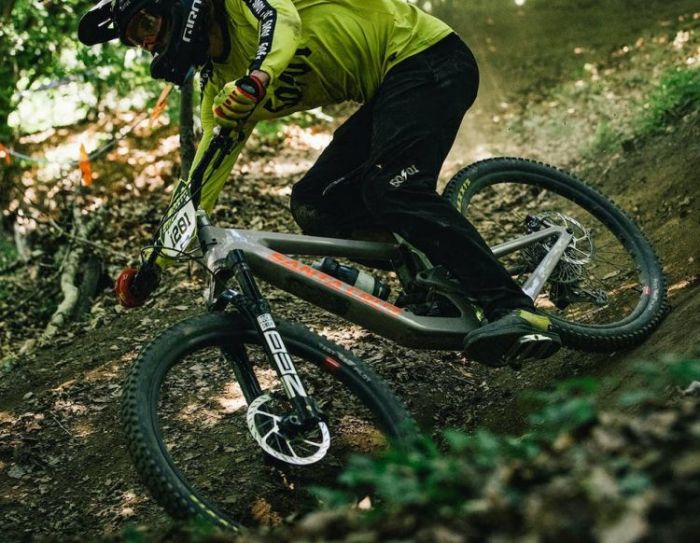Merida BIG.TRAIL 500 Review
- Price: $1337
- Frame: Aluminum
- Tires: 29″Aluminum
- Gear: 1×11
What we like about it: The lightweight and durable double-butted aluminum frame gives a safe and comfortable ride.
What we don’t like about it: The not-so-rich color scheme options may make some people hesitate.
Rating: (4.8/5)
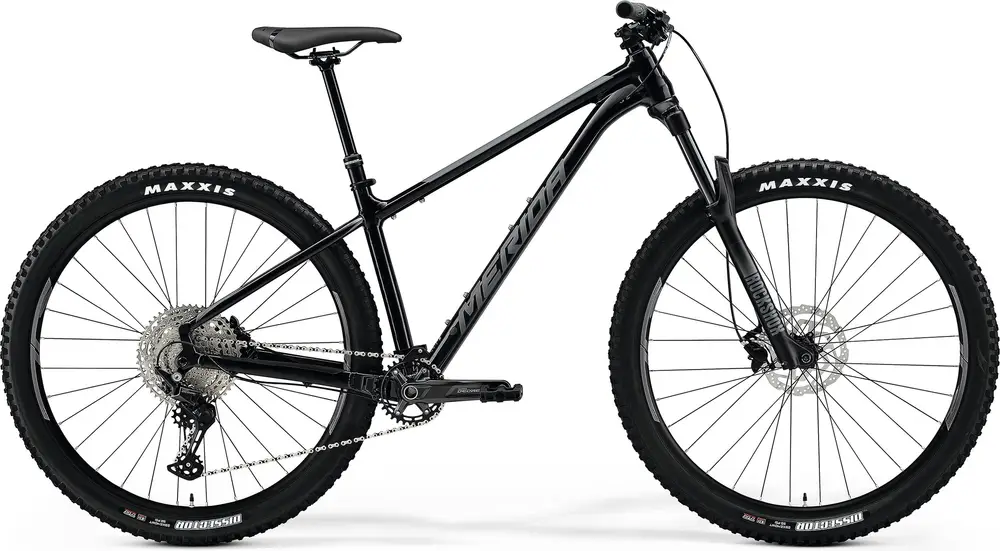
At first, I didn’t have high expectations for the Merida BIG.TRAIL 500. After all, with a price tag of $1337, it was clear that it wouldn’t come with top-of-the-line components.
But when I took it for a ride, I realized I was wrong. We should all understand that a truly good mountain bike isn’t just created by simply piling up high-end parts.
The excellent geometry design combined with a kit that sufficiently reflects its performance makes it a standout product.
As one of the flagship models in the BIG.TRAIL series, the Merida BIG.TRAIL 500, which offers a combination of price and performance, is a great choice whether you’re a beginner or an experienced mountain biking enthusiast.
Now, let’s analyze the riding experience, key features, components, and specifications, as well as other versions of the Merida BIG.TRAIL 500. If you want to delve into the details of this outstanding hardtail mountain bike, please read on.
In the latter part of this article, we will also compare it to several other top bicycle models. If you’re interested in more bike reviews, feel free to follow us.
Riding Experience
I have always been interested in off-road cycling, and when I got my hands on the Merida BIG.TRAIL 500, I was excited to see how the combination of its hardtail simplicity and trail riding would create a wonderful experience.
I decided to choose a nice weather day and take the BIG.TRAIL 500 to the Innerleithen Trails. This route offers great forest trails to explore. After booking a hotel through Skyscanner, I couldn’t wait to set off and give it a try.
Climbing
It turns out that the Merida BIG.TRAIL 500 has an impressive uphill performance. The Shimano Deore drivetrain paired with a Shimano M5100 11-51 teeth, 11-Speed freewheel allowed me to easily tackle the steep inclines of trails like Push Up.
I was also pleasantly surprised by the Maxxis Dissector 29-inch tires, which provided excellent traction on steep and loose sections of the trail. The tires also offered great grip, and I rarely experienced any slipping.
Additionally, the 2.4-inch width avoided excessive weight that could impact the speed of the Merida BIG.TRAIL 500.
The hardtail design of the BIG.TRAIL 500 prevented any loss of power while pedaling, unlike full-suspension mountain bikes. This was particularly noticeable during uphill climbs, and I believe it’s one of the reasons why many people prefer it.
Downhill
Essentially, hardtails are not typically known for their downhill skills. While no tire width can replace the plush feel of a full suspension bike, the Merida BIG.TRAIL 500’s longer wheelbase and 65.5° head tube angle set it up for decent downhill performance right from the start.
The robust, high-volume tires combined with the quality Rock Shox Recon Silver RL fork make the suspension feel more capable than what its 140mm travel suggests. Thanks to this bike, my hands didn’t feel overly fatigued despite the bumps on the trail.
Furthermore, even on steep and rugged descents, the Merida BIG.TRAIL 500 equipped with Tektro M275 hydraulic brakes provided excellent stopping power. I was able to safely maneuver around or come to a stop when encountering sudden rocks or roots.
And thanks to the support of the BIG.TRAIL TFS aluminum frame and fork, I could maintain stability throughout. The rushing wind and the scent of grass in the forest during the downhill provided a soothing feeling to my restless mind.
The confidence that the BIG.TRAIL 500 instilled in me made me think that maybe I could take on more challenging sections next time.
The use of a dropper post also allowed me to adjust my riding position better to tackle the varying riding conditions on the trail. Even after completing the entire section, I still felt relatively comfortable.
Ultimately, I believe the Merida BIG.TRAIL 500 is a highly capable and reliable hardtail bike. I will definitely continue to explore more rugged terrains with it.
Specification
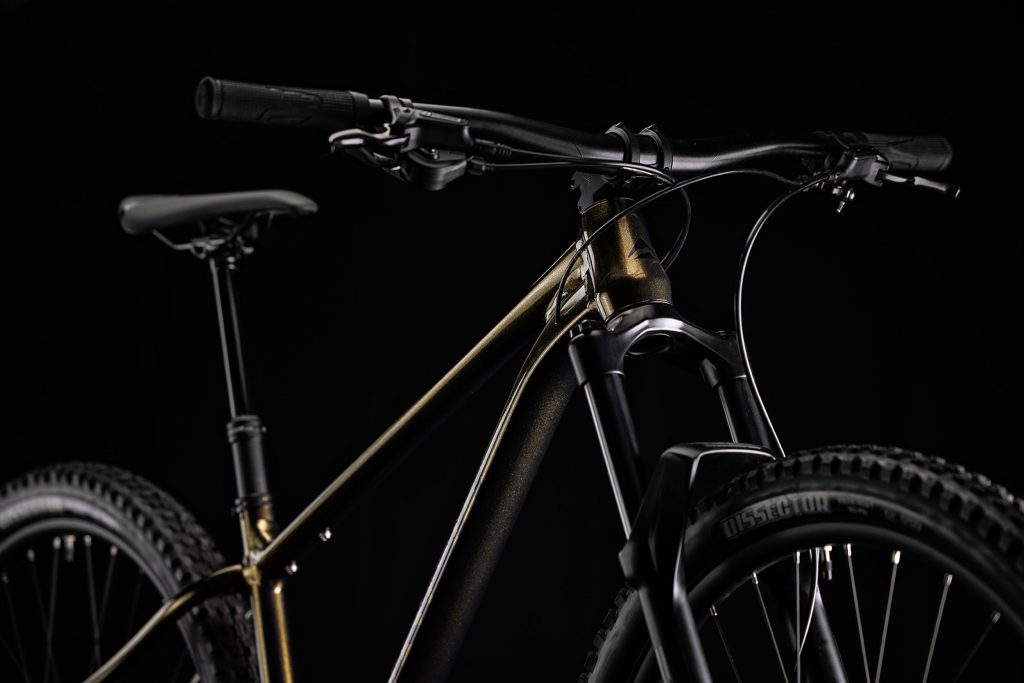
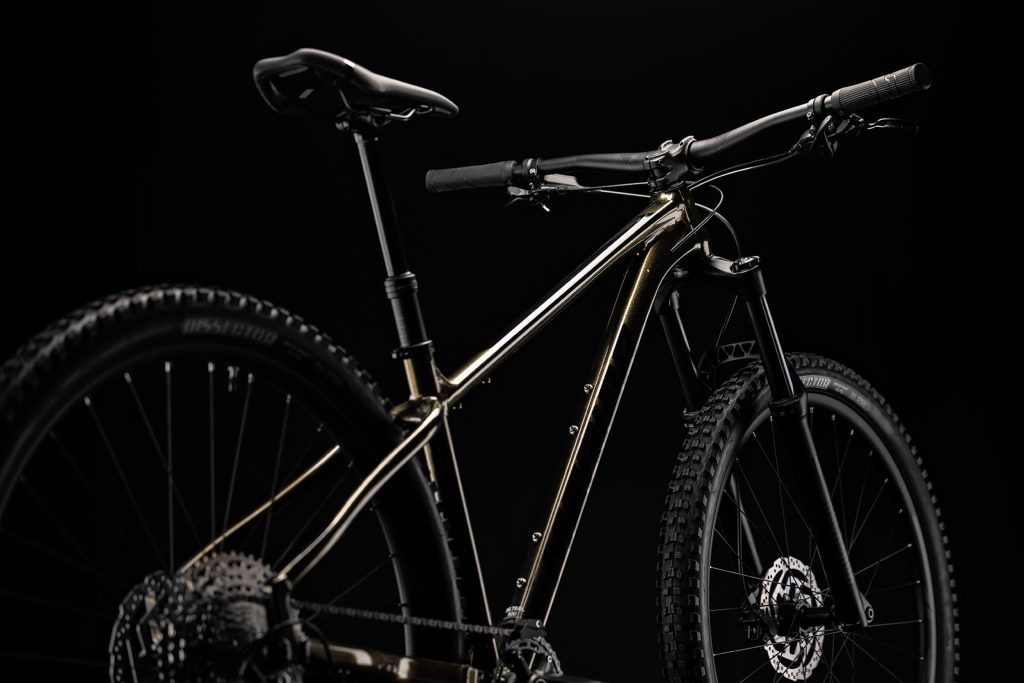
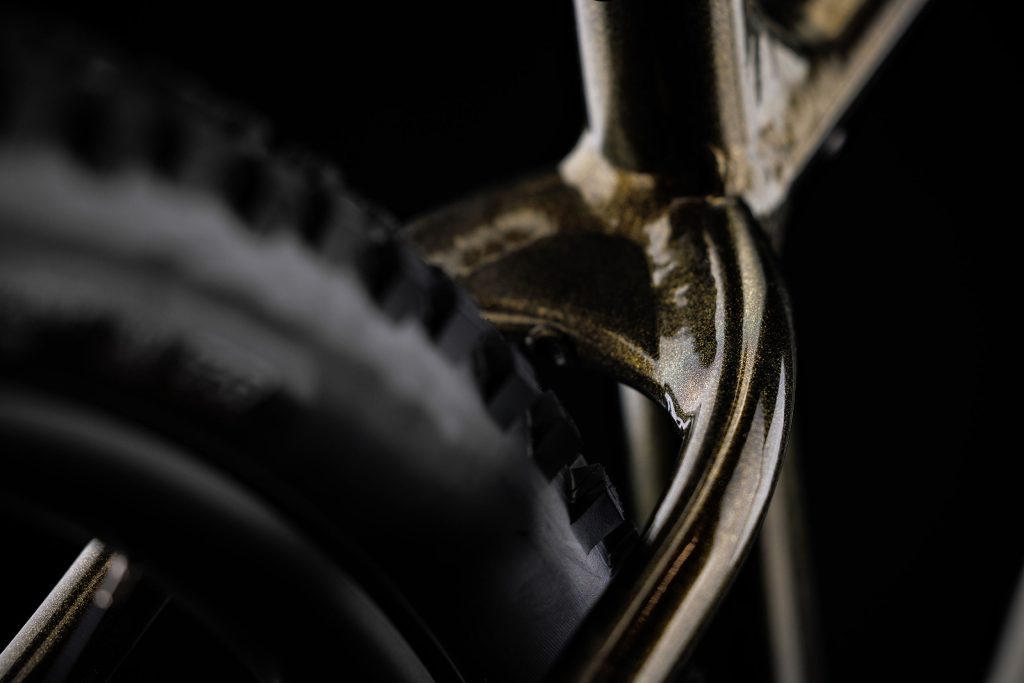
When I first laid eyes on the Merida BIG.TRAIL 500, I was pleasantly surprised. It’s a bike with excellent geometry and plenty of beautiful details.
The Racelite 61 aluminum BIG.TRAIL TFS frame gives it a clean and sleek appearance. The all-black 140mm Rock Shox Recon Silver RL fork undeniably adds a premium look and feel.
Additionally, the BIG.TRAIL 500 is equipped with 29×2.4″ Maxxis Dissector tires. These dual-compound tires feature two types of rubber, providing lower rolling resistance and increased cornering grip.
Furthermore, the 75.5° seat tube angle allows the rider to stay comfortably seated and stable during climbs. This not only improves comfort but also makes pedaling easier.
The seemingly steep geometry design also helps provide lift to the front wheel of the Merida BIG.TRAIL 500 on inclines while still maintaining sufficient traction for the rear wheel.
And of course, it means you don’t have to lower yourself onto the frame just to get enough weight on the front wheel. It’s safe to say that the Big.TRAIL is a very competent climber.
The BIG.TRAIL also offers simplified and worry-free off-road fun. Available in sizes from small (SM) to extra extra large (XXL), it provides ample sizing options and a wide range of fits.
Video
Other Versions
The Merida BIG.TRAIL 500 is a powerful hardtail mountain bike. However, if you’re a beginner rider and looking to purchase an entry-level hardtail with a lower budget, we also have some other model recommendations.
Merida BIG.TRAIL 200
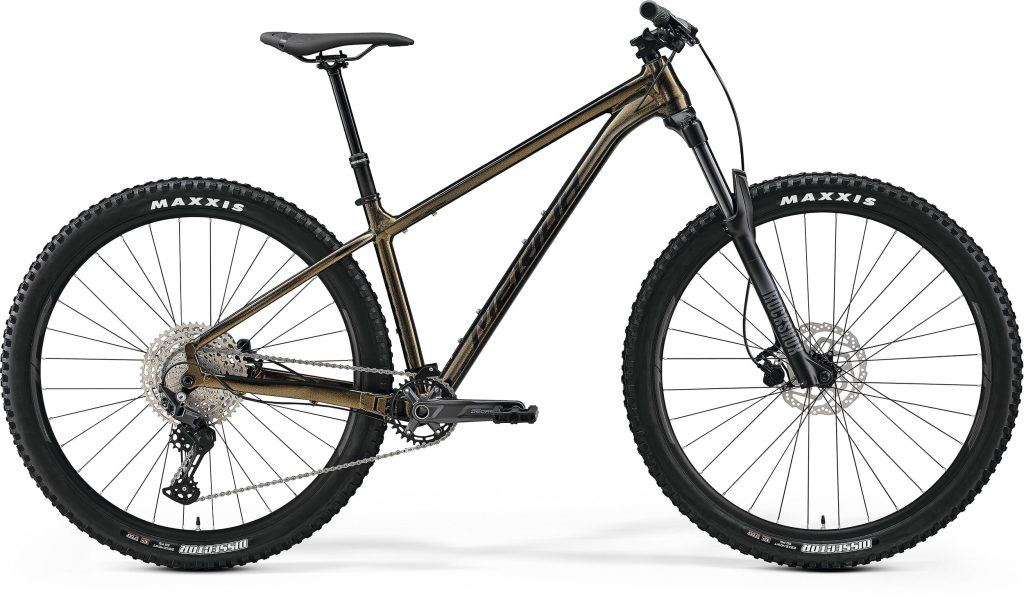
The Merida BIG.TRAIL 200 is priced around $400 cheaper than the BIG.TRAIL 500. It shares the same geometry design, and its 120mm SR Suntour XCM32 DS fork is suitable for mountain biking. Additionally, its more vibrant color options might appeal to some riders.
Although the Merida BIG.TRAIL 200 features a slightly lower-grade M4100 drivetrain compared to the Shimano Deore M5100 on the BIG.TRAIL 500, and it lacks the convenience of a dropper post for on-the-fly riding position adjustments, the BIG.TRAIL 200 does come with the same Tektro M275 hydraulic brakes as the BIG.TRAIL 500, ensuring ample stopping power.
So, if you have a limited budget, the Merida BIG.TRAIL 200 is a good option. However, if you’re looking for a more comfortable riding experience, I would recommend the Merida BIG.TRAIL 500 instead.
What do we like about it?
- Lightweight and durable double-butted aluminum frame.
- 140mm fork for a comfortable riding experience.
- Internal cable routing reduces maintenance and cleaning costs.
- Multiple mounting points for accessories.
- Excellent grip performance.
What don’t we like about it?
- Some people may not prefer its steep seat tube angle.
FAQ
- What tires and tire size does the Merida BIG.TRAIL 500 use?
It uses Maxxis Dissector 29×2.4″ tires, which provide a good grip. The high-volume tires also contribute to ride comfort.
- What upgrades were made to the Merida BIG.TRAIL 500?
There are no significant changes in the geometry design. However, the drivetrain has been upgraded to Shimano Deore M5100, and the fork has been optimized to a 140mm Rock Shox Recon Silver RL.
- How do I choose the size of this bike?
The Merida BIG.TRAIL 500 is friendly to riders of all heights, with five size options available. You can refer to the size chart below as a guide, but it’s normal to have personal preferences that may deviate from it. The best way to find the most suitable size is to try it out for yourself.
| Rider height | SIZE |
| 157 – 173 cm | S |
| 167 – 183 cm | M |
| 177 – 190 cm | L |
| 187 – 196 cm | XL |
| > 192 cm | XXL |
Specs
Build
| Frame | BIG.TRAIL TFS, material: aluminium, 29×2.5″ max. wheelsize, 148x12mm axle standard, BSA bottom bracket standard BB Standard: BSA, 73mm, Threaded |
| Fork | Rock Shox Recon Silver RL, 140mm suspension travel, Tapered, 42mm fork offset |
| Bottom Bracket | BSA, 73mm, threaded |
| Headset | MERIDA M4455 |
| Handlebar | MERIDA EXPERT TR, material: aluminium, 780mm width, 20mm rise |
| Saddle | MERIDA COMP SL, V-mount |
| Seatpost | MERIDA COMP TR, 30.9mm diameter, 0mm setback, S: 125mm travel seatpost – M/L: 150mm travel seatpost – XL/XXL 175mm travel seatpost |
Wheels
| Rims | MERIDA COMP TR, 29mm inner width, material: aluminium, Tubeless ready (tubeless tape and valves not included) |
| Spokes | Black stainless |
| Front Hub | Shimano MT400-B, 110x15mm width front hub, 32 spoke holes, Centerlock |
| Rear Hub | Shimano MT400-B, 148x12mm width rear hub, 32 spoke holes, Centerlock |
| Tires | Maxxis Dissector, 29×2.4″, fold, TR EXO Dual |
| Disk Rotors | Shimano RT10, 180 mm |
Groupset
| Rear Derailleur | Shimano Deore M5100 Shadow+, SGS |
| Crank | Shimano Deore M5100, 32 teeth, 170 mm-S, 175 mm-M up |
| Shifters | Shimano SL-MT500-IL |
| Cassette | Shimano Deore M5100, 11-51 teeth, 11 speed |
| Chain | KMC X11 |
| Chain Guide | Mr. Control CH-CM1 |
| Brakes | Tektro M275, 2 piston |
Comparison Table
| Bicycles | Click view | Tires | Drivetrain | Frame material | Groupset |
| Cannondale Habit HT 2 | Click View | (F) WTB Vigilante, 29×2.5″(R) WTB Vigilante, 29×2.4″ | 1 × 10 | Aluminum | microSHIFT Advent X Pro |
| Canyon Stoic 2 | Click View | Schwalbe Hans Dampf 2.35″ | 1 × 10 | Aluminum | Shimano Deore |
| Trek Roscoe 7 | Click View | Bontrager XR4 Team Issue, 27.5×2.60” | 1 × 12 | Aluminum | Shimano Deore |
| Kona Big Honzo | Click View | WTB Ranger 27.5×2.8″ | 1 × 11 | Aluminum | Shimano Deore |
Merida BIG.TRAIL 500 vs Cannondale Habit HT 2
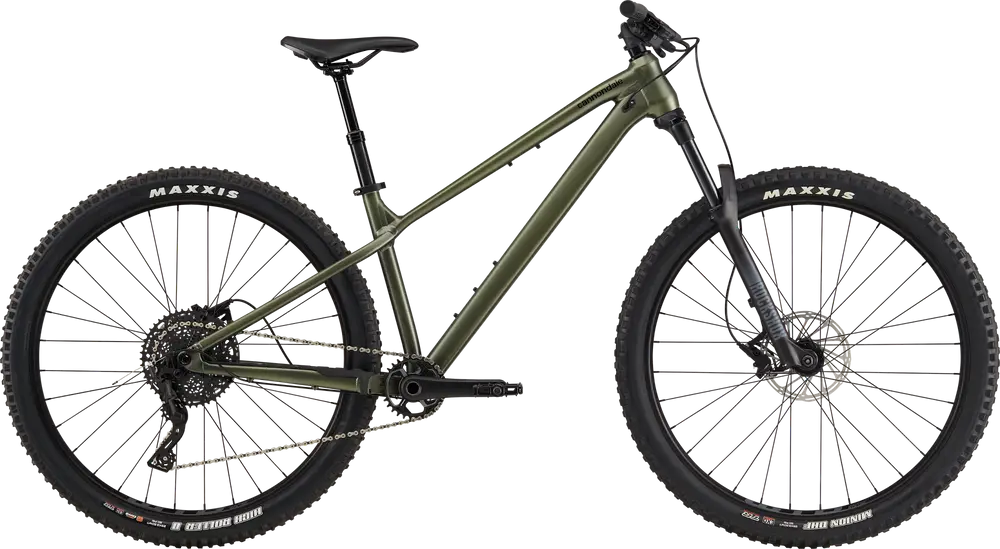
Firstly, the Cannondale Habit HT 2 features a lightweight and durable SmartForm C2 aluminum frame, providing both a sturdy structure and reduced weight.
Secondly, its SRAM Level hydraulic disc brake system performs excellently on steep downhill trails.
However, it is unfortunate that the Cannondale Habit HT 2 has a 130mm fork travel, which is lower than the 140mm travel fork of the Merida BIG.TRAIL 500.
The tire sizes of both bikes are almost the same. Therefore, in terms of suspension, the BIG.TRAIL 500 is slightly better.
If you are dedicated to conquering various steep and rugged terrains and prioritize a more comfortable ride for your arms, I believe the Merida BIG.TRAIL 500 is the better choice.
Learn More: Is Cannondale Habit 5 A Good Bike?[Cannondale Habit 5 Review]
Merida BIG.TRAIL 500 vs Canyon Stoic 2
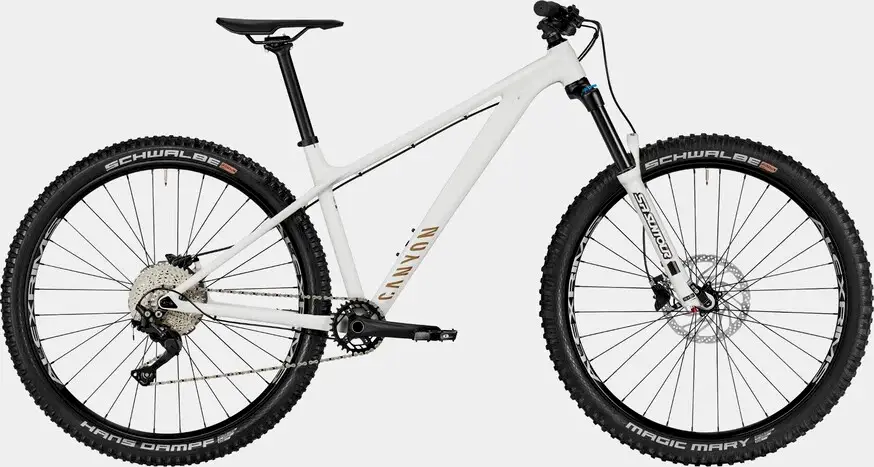
For budget-conscious beginners, the Canyon Stoic 2 has surely caught their attention. It offers a wide range of frame sizes, including an XXS option for smaller riders.
When comparing the Merida BIG.TRAIL 500 and the Canyon Stoic 2 in terms of stack height, the Stoic 2 has a lower stack, which may appeal to riders who prefer a more aggressive, forward-leaning position to gain more speed.
For those individuals, the Canyon Stoic 2 is a good choice. However, for long rides, it’s important to alleviate body fatigue, which is why I prefer the Merida BIG.TRAIL 500, as it allows me to maintain a more comfortable upright posture.
Additionally, the dropper post design that enables on-the-fly riding position adjustments is another appealing feature of the BIG.TRAIL 500.
Learn More: Is Canyon Stoic 2 Worth Buying? [Canyon Stoic 2 Review]
Merida BIG.TRAIL 500 vs Trek Roscoe 7
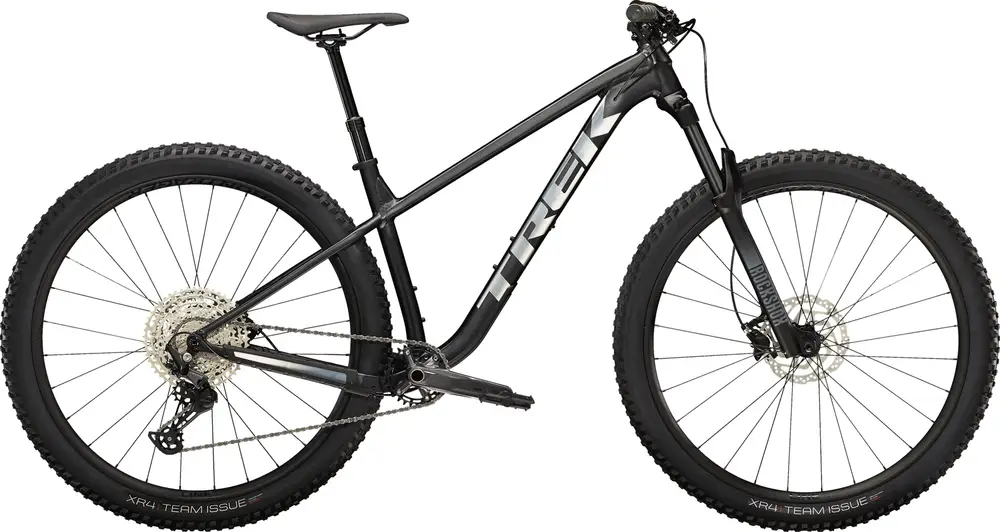
The Merida BIG.TRAIL and Trek Roscoe 7 have distinct differences in their geometry designs, with the Roscoe 7 having slightly shorter chainstays.
This improves its maneuverability. However, if you prioritize bike stability, then the BIG.TRAIL 500 is still more suitable.
In addition, the Trek Roscoe 7 features a stronger Shimano Deore M6100 drivetrain compared to the Shimano Deore M5100 on the Merida BIG.TRAIL 500. Its 12-speed design also gives the Roscoe 7 more climbing power.
I was surprised to see that the Roscoe 7 has ample tire clearance in the rear. If you want to increase the tire size to 29 inches, there’s enough space to accommodate it.
This adds to its versatility. However, it’s important to note that the Roscoe 7 comes with an additional cost of approximately $500.
Therefore, if you’re looking for a high-value hardtail mountain bike, the Merida BIG.TRAIL 500 is a good choice.
Learn More: Is Trek Roscoe 7 Worth Buying? [Trek Roscoe 7 Review]
Merida BIG.TRAIL 500 vs Kona Big Honzo
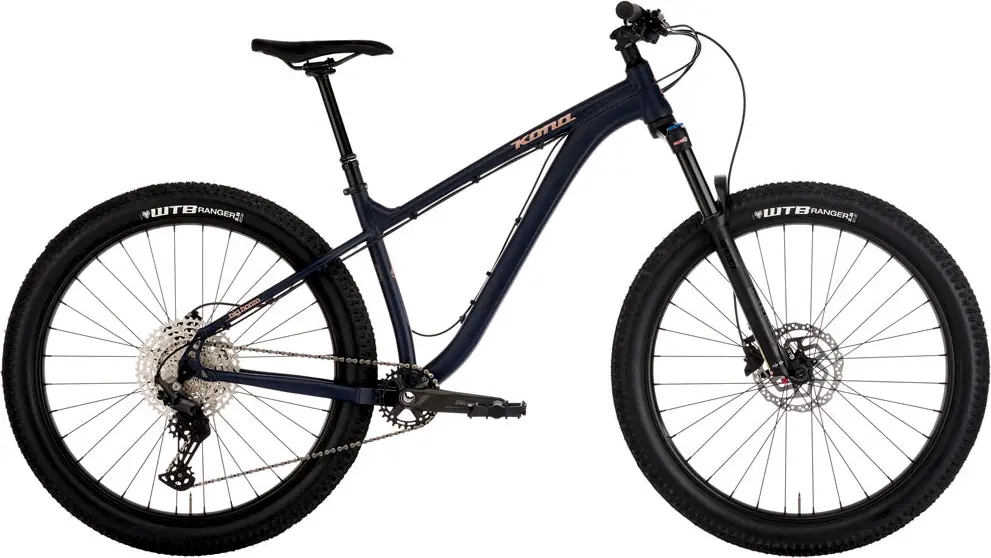
Both of these bikes belong to the category of excellent hardtail mountain bikes and have unique features.
The Kona Big Honzo, with its 67.5° head tube angle and 2.8-inch tire width, indicates that it offers a more relaxed riding position and greater stability in off-road conditions.
However, for riders who prioritize speed, the more aggressive head tube angle and narrower tires of the Merida BIG.TRAIL 500 would be a more suitable choice.
Furthermore, thanks to its relatively low trail, the Kona Big Honzo offers quicker and more agile handling.
However, a higher trail provides greater speed stability and a tendency for self-correction during turns. In my opinion, this is particularly useful for rugged terrains.
Another noteworthy point is the shorter seat tube of the BIG.TRAIL 500, which is one of Merida’s characteristics.
If you’re accustomed to riding larger-sized bikes, then you don’t have to worry about standover height if you choose the Merida BIG.TRAIL 500.
Learn More: Is Kona Mahuna Worth Buying? – [Kona Mahuna Review]
Summary
Above is our review and evaluations of the Merida BIG.TRAIL 500. It performs exceptionally well and offers a high-performance mountain bike option for those who don’t want excessive complexity or have budget constraints.
In our opinion, the Merida BIG.TRAIL 500 is a bike worth purchasing. Taking all factors into consideration, it’s why we gave it a high rating of 4.8. If you’re interested in trying out higher-end hardtail mountain bikes, feel free to explore our other reviews.
Finally, if you enjoy our content, please share it with your friends! If our content has been helpful to you, you can click the subscription button below to receive updates via email. Thank you for your support!

![[Orbea URRUN 10 20mph Review] – Best Used By People Who Enjoy Riding To Get AFeel For The Mountains!](https://bestbikeselect.com/wp-content/uploads/2023/09/2023-Orbea-URRUN-10-20mph-35_-1024x1024.jpg)
![[Specialized Turbo Como 5.0 Review] – Good Choice?](https://bestbikeselect.com/wp-content/uploads/2023/08/2023-Specialized-Turbo-Como-5.01_-1024x1024.webp)
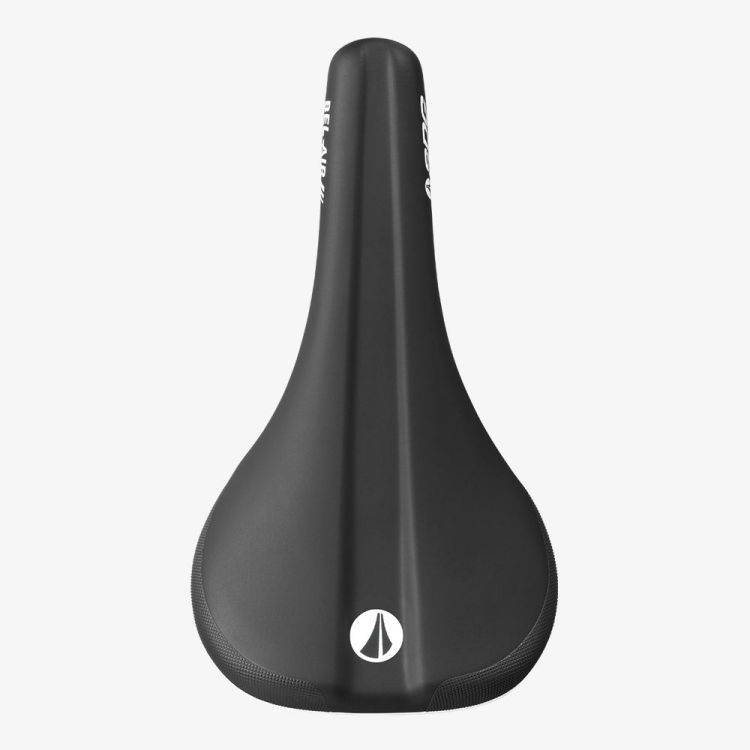
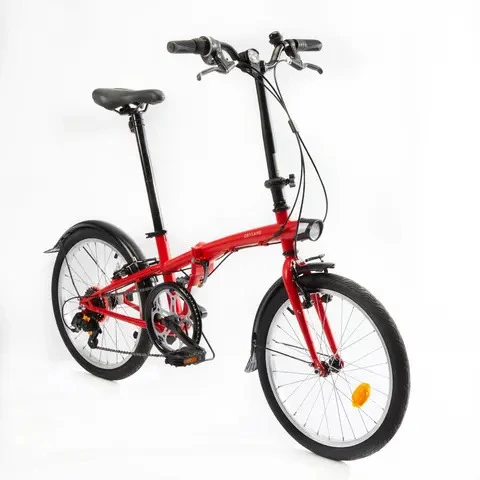
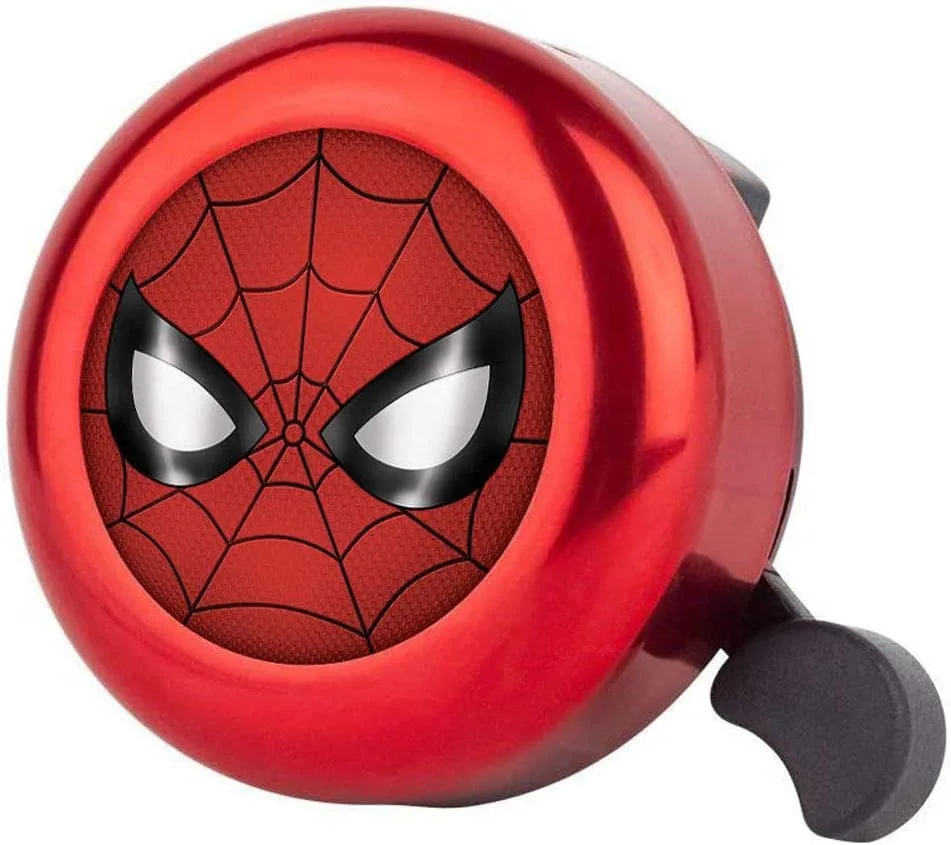
![2025 Built for Champions:[Orbea ORCA M21eTEAM PWR Review]](https://bestbikeselect.com/wp-content/uploads/2025/01/ORCA-M21eTEAM-PWR-1024x885.jpg)
![2025 Conquer Any Trail [Santa Cruz Bronson R Review]](https://bestbikeselect.com/wp-content/uploads/2025/01/Santa-Cruz-Bronson-R-1-1024x768.webp)
![2025 The All-Terrain Beast [Santa Cruz Hightower 3 MY24 Review]](https://bestbikeselect.com/wp-content/uploads/2025/01/Santa-Cruz-Hightower-3-MY24-1024x768.webp)
![The Best Comfortable Leisure Bike of 2025 [ Trek Verve 2 Lowstep Gen 5 ]](https://bestbikeselect.com/wp-content/uploads/2024/12/Verve-2-Lowstep-Gen-5-02-1024x681.png)
![2025’s Top Endurance Bikes [Cannondale Synapse Carbon 3 L Review]](https://bestbikeselect.com/wp-content/uploads/2025/01/Cannondale-Synapse-Carbon-3-L-1-1024x627.webp)
